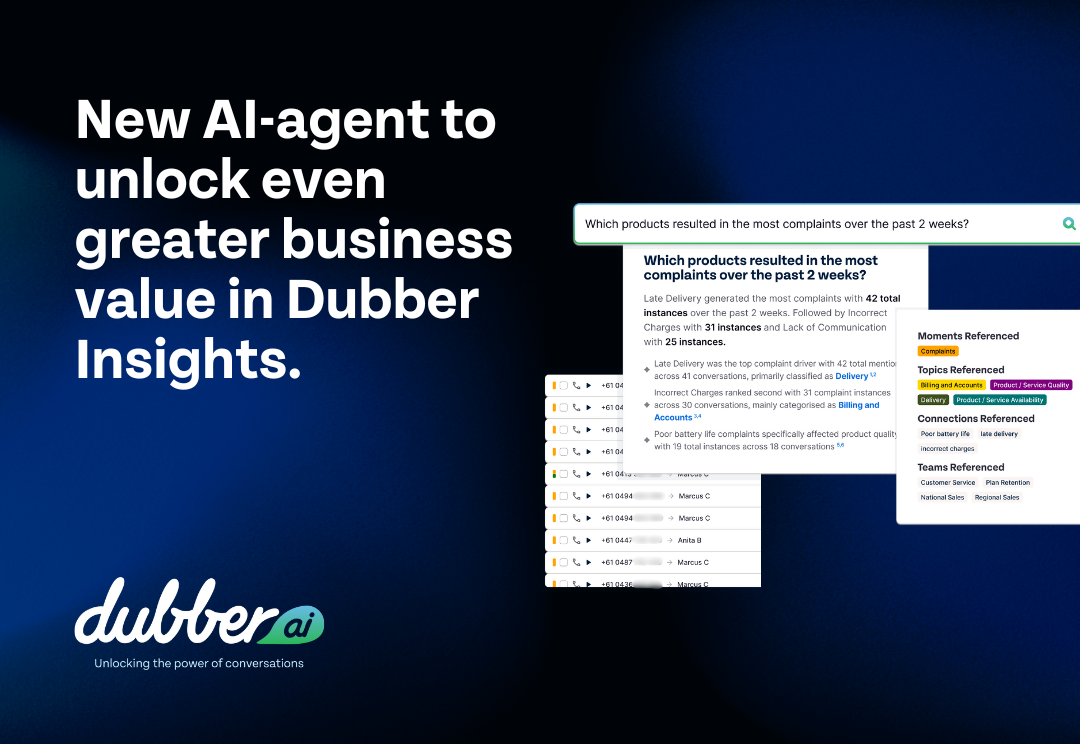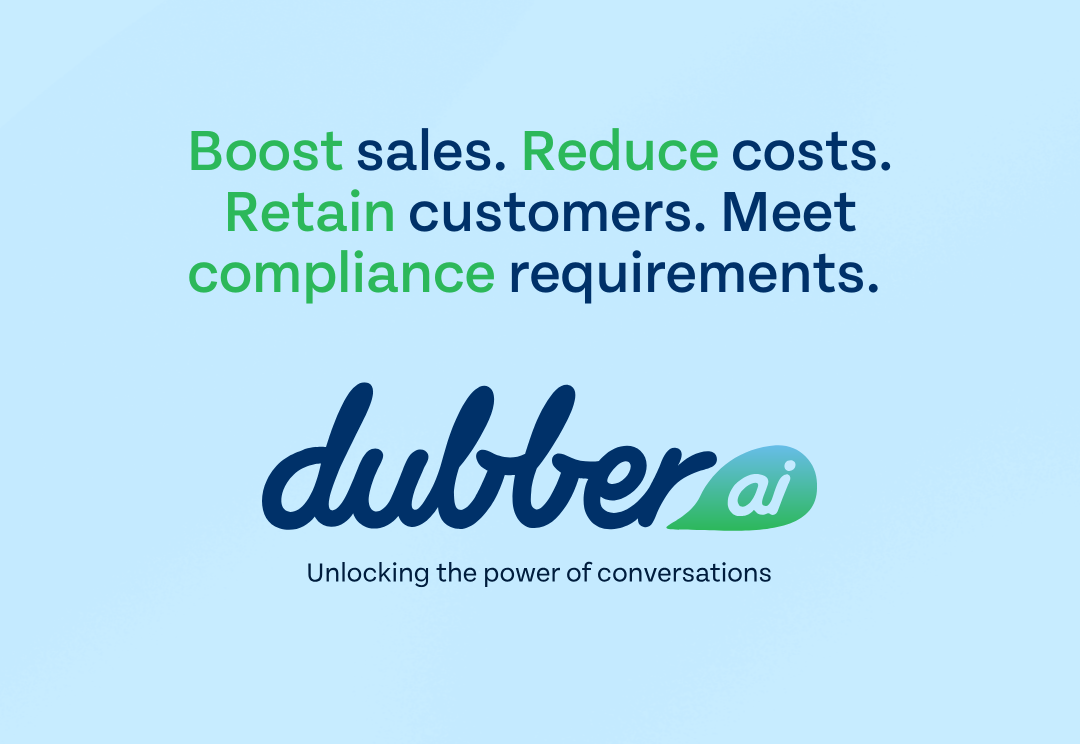
Five questions with James Slaney
James Slaney is co-founder of Dubber and General Manager of Product.
1. How do you think data and analytics will change the way customers interact with their clients?
With the impacts on business we have seen from COVID, encouraging customer loyalty is more important than ever. Companies that want to provide consumer-centric products and services will be looking to analytics to inform every business decision.
An example of how voice data can be used is through sentiment analysis. Calls can be analysed to detect customer emotions, allowing businesses to use this data to identify opportunities for cross-selling or new sales, as well as identifying potential churn risks. By distilling vast amounts of call data, businesses can gain a more accurate reflection of general customer sentiment than, for example, customer satisfaction surveys. Understanding these potential risks and opportunities can be lucrative for businesses who want to put the customer at the centre of every business decision.
2. What are the major compliance issues impacting the use of call recording applications?
With regulations governing a variety of industries, and businesses increasingly operating globally, compliance is a key issue for many companies. Secure storage is a top priority when complying with regulatory frameworks, and this needs to scale to meet the 5+ year requirements of legislation such as MiFID II. Businesses can struggle to meet the high demands of regulations. On-premise solutions, and even some cloud providers, are unable to offer long-term storage that ensures businesses are compliant. Concerns about running out of storage space, data leaving the European Economic Area, or a lack of functionality such as audit logging, can mean businesses risk fines. When businesses are looking for call recording solutions, they need to ask themselves, does the call recording solution offer unlimited storage? Does it comply with global compliance standards? Can it provide back-up storage options for outages? How easy is it to set up? Is recalling specific records easy so the cost of ad hoc requests is kept to a minimum?
3. Where do you see the biggest opportunities for resellers today?
As Enterprises are seeing the importance of data, it’s possible for them to collect more data than they know what to do with or can practically use. Limited time and resources mean that, unless they are given the right tools to help segment and analyse data, any sustainable, repeatable business value that can be gained from data will be lost. This is where we see the biggest opportunities for resellers today: being a trusted advisor for businesses looking to access and understand their data. Analytics, powered by AI, offers businesses a way to extract value from the huge amount of data available to them: allowing them to improve their decision making through actionable insights.
Our most successful partners are able to show customers how an open API can allow for integrations with other products – like Salesforce – to make finding the value in data even easier. By demonstrating integrations with data visualisation tools such as Tableau, even customers with little experience of data science quickly see how easy it is to spot trends in the data they are collecting and how these can inform their business operations.
4. What kind of innovations would you like to see in 2021 and beyond?
Voice data and AI will become a natural part of understanding what is happening in every corner of a business – listening to phone calls is going to seem as outdated as receiving a fax. Advances in language technology will give us the ability to find meaning in voice data in ways that seemed like science fiction only a few years ago. Insights from voice AI are not only something that will drive better business decisions in customer-facing businesses and call centres. We will be able to use deep insights from calls to places like emergency services and COVID-19 helplines to help with decision making that will directly affect people’s lives.
5. Where do you see the future of voice data intelligence?
In today’s data-driven world of business, voice data is becoming more and more important. As organisations begin to realise the power of voice data, they are turning to unified call recording to help them harness that valuable call data they receive every day. Significant development has been put into voice-to-text transcription, and this is only going to improve as automatic speech recognition models are trained to understand more languages, dialects, and accents. It’s not only what was said that is important, but how it is said. Sentiment and tone analysis are areas of further development, allowing businesses to truly understand how their customers feel about them. These innovations give rise to a whole host of business use cases: from churn prevention through the early detection of unhappy customers, to product development by identifying trends in customer needs.

